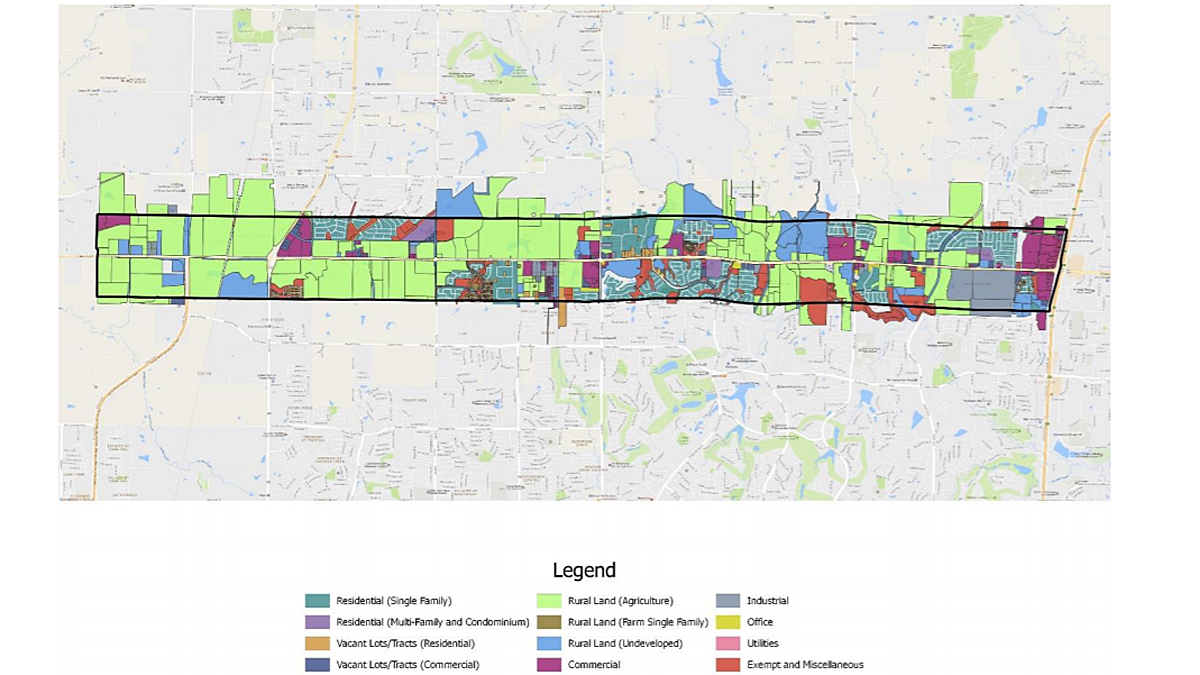A new study found that converting the existing U.S. Highway 380 to a limited-access freeway could help ease congestion in Collin County while boosting the economy.
The study, conducted by the Perryman Group, was commissioned by Collin County leaders, adding another option to the three U.S. 380 bypass routes that have been presented to residents in McKinney.
 Perryman Group
Perryman GroupHomeowners attended a public hearing regarding the study Monday evening, including many still opposed to the bypass but open to learning more about converting U.S. 380 to a freeway.
"I'm asking you to consider the human factor," said McKinney homeowner Janet Anders, whose home would be impacted by U.S. 380 bypass routes. "It's not always about the bottom line and the dollar."
For Sean Nance, a Collin County real estate agent, the uncertainty of the major roadway can be a tough sell.
"Right now, as nothing is happening and there is no construction being seen, people could get into these neighborhoods now and then have these roads just paved right next to them in two, three years, and it kills their value then," Nance said, adding that he tries to inform potential home buyers as much as possible.
Local
The latest news from around North Texas.
"Had it been addressed 15 years ago, it wouldn't be an issue at all today," Nance said.
The McKinney City Council passed a resolution opposing the widening of U.S. 380 in the spring of 2016 and is now favoring the Laud Howell bypass option, but re-evaluating all routes.
Reconstruction of U.S. 380 has already started in the Frisco and Prosper area last March, upgrading the road from a four-lane highway into a six-lane freeway. It is expected to be complete in the winter of 2018.
U.S. 380 is a state-owned roadway, so ultimately the Texas Department of Transportation will make the final decision.



